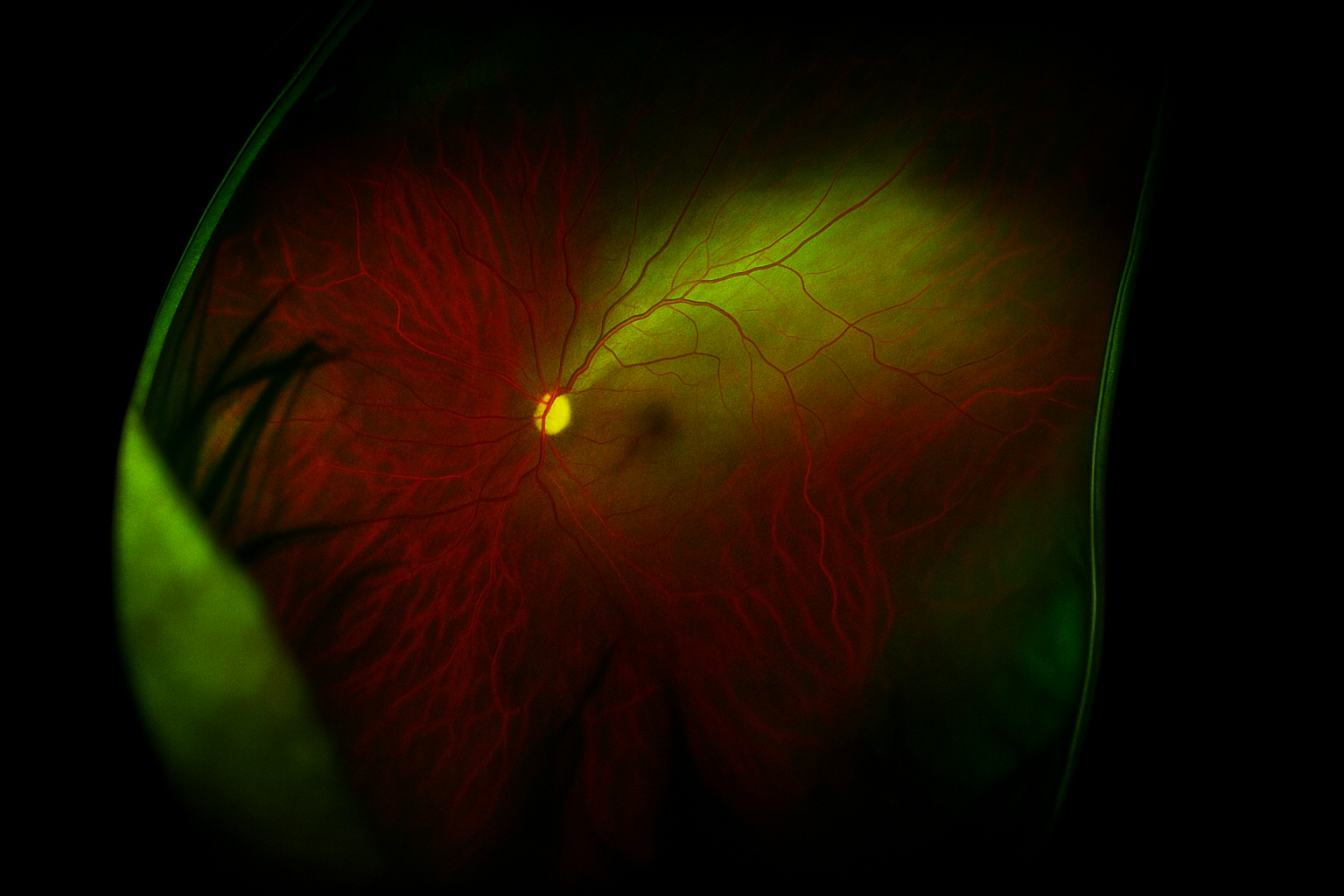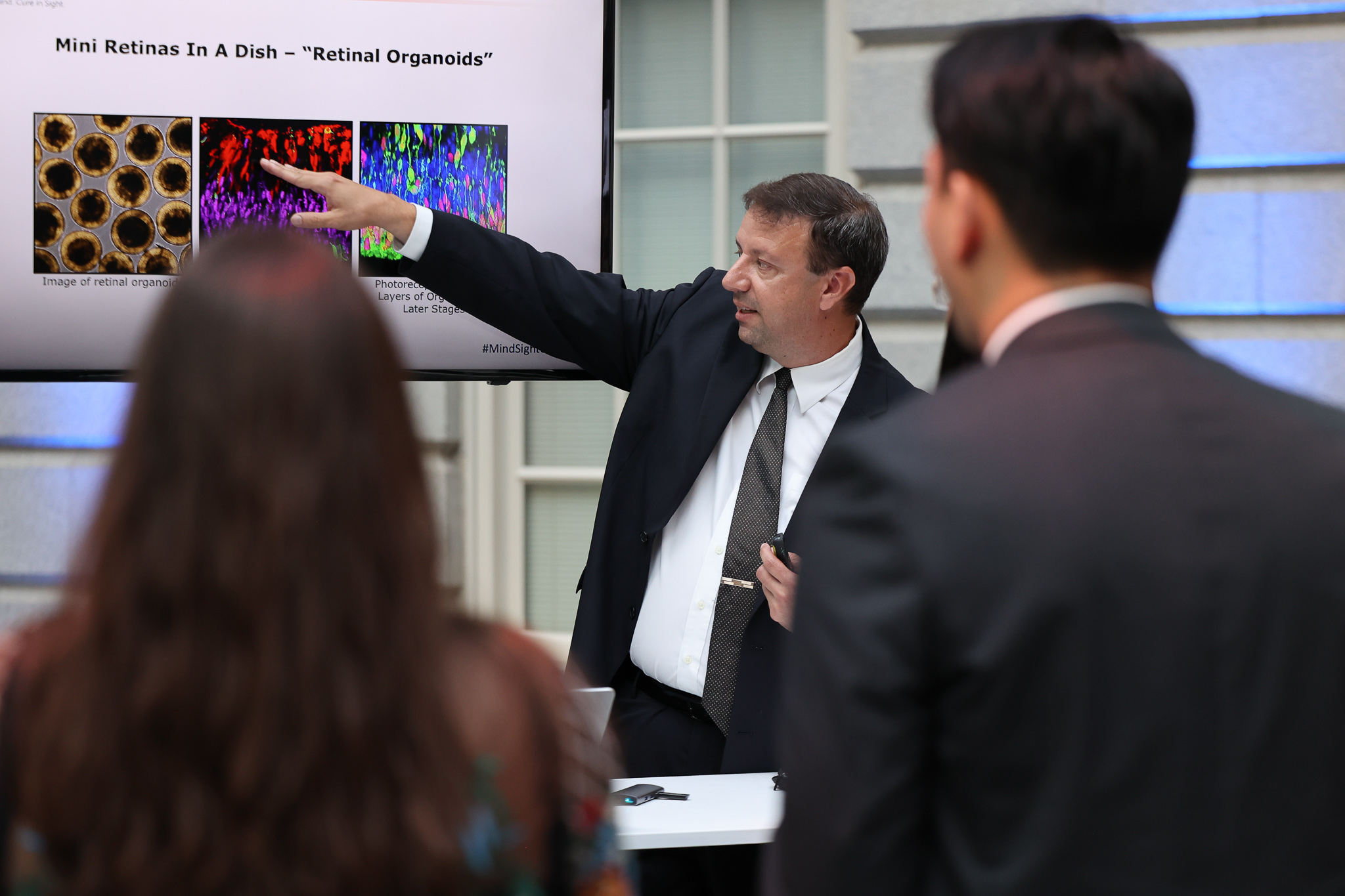Astrocytes Regulate the Health and Degeneration of Retinal Ganglion Cells in Glaucoma Neurodegeneration

About the Research Project
Program
Award Type
Standard
Award Amount
$180,000
Active Dates
September 01, 2020 - August 31, 2022
Grant ID
G2020369
Goals
Astrocytes are known to play vital roles in the maintenance of retinal ganglion cells, with these interactions adversely affected in glaucoma. In particular, as is common across a number of neurodegenerative diseases, the mitochondria of these cells are damaged, presumably leading to the disease phenotypes. The use of human pluripotent stem cells allows for the precise modeling of these interactions in a dish, providing the spatial and temporal resolution to closely examine how mitochondrial function is changed in these cells as a result of glaucoma, as well as how these changes in mitochondria alter the health and function of the cells as a whole.
Summary
The goal of this project is to examine the ways in which astrocytes, a type of support cell found throughout the central nervous system, can be adversely affected in glaucoma, leading to the degeneration of retinal ganglion cells. To accomplish this, we will utilize an in vitro human pluripotent stem cell model of glaucoma derived from samples from patients with inherited forms of the disease, as well as unaffected control cell lines. These cells will be differentiated into both retinal ganglion cells and astrocytes, and these differentiated cells will be grown together to examine the ways in which astrocytes regulate retinal ganglion cell function and viability. Through the use of these stem cell models, we are able to analyze mechanisms underlying the disease state in astrocytes and retinal ganglion cells in a human cellular model. Once the study is complete, we hope that results will illustrate the importance of astrocytes in the disease state, providing new pathways for the development of therapeutic approaches to glaucoma.
Related Grants
National Glaucoma Research
Human Retinal Regeneration to Cure Glaucoma
Active Dates
July 01, 2025 - June 30, 2027

Principal Investigator
Karl Wahlin, PhD
Current Organization
University of California, San Diego
National Glaucoma Research
From Resilience to Vulnerability: How Stress Accelerates Aging
Active Dates
July 01, 2025 - June 30, 2027

Principal Investigator
Dorota Skowronska-Krawczyk, PhD
Current Organization
University Of California, Irvine
National Glaucoma Research
Why Certain Retina Ganglion Cells Stay Strong in Glaucoma
Active Dates
July 01, 2024 - June 30, 2026

Principal Investigator
Mengya Zhao, PhD
Current Organization
University of California, San Francisco
News Featuring This Grantee

Looking Beyond Pressure-Lowering Drugs to Treat Glaucoma
A National Glaucoma Research-funded scientist is building a 3D model of the optic nerve that she hopes will solve unanswered questions about glaucoma—and inspire new treatments.





